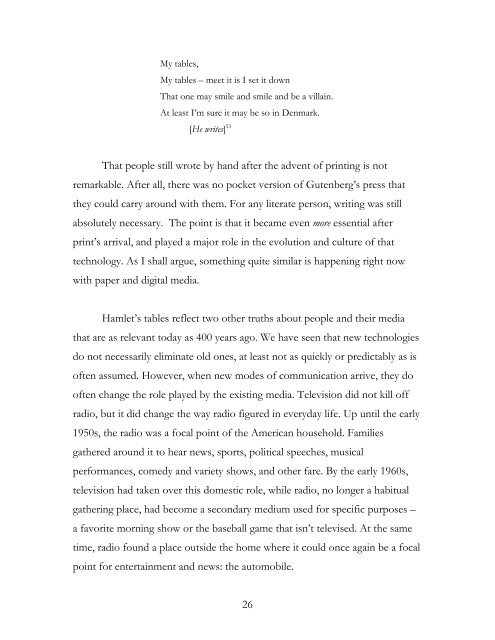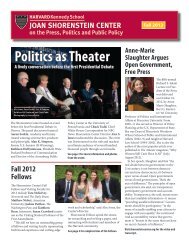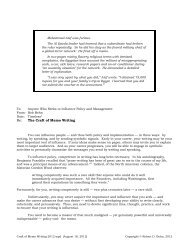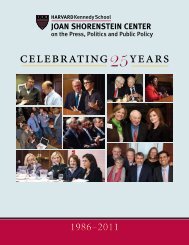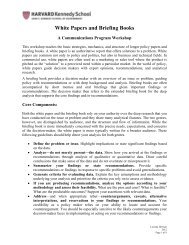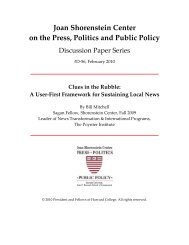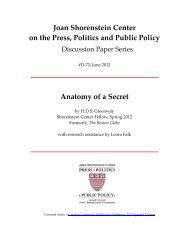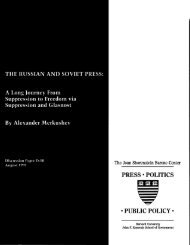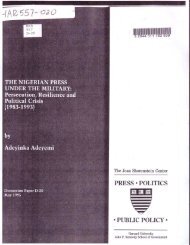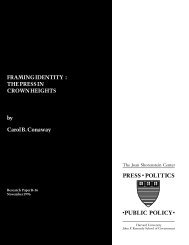Why Paper Is Eternal - Joan Shorenstein Center on the Press ...
Why Paper Is Eternal - Joan Shorenstein Center on the Press ...
Why Paper Is Eternal - Joan Shorenstein Center on the Press ...
Create successful ePaper yourself
Turn your PDF publications into a flip-book with our unique Google optimized e-Paper software.
My tables,<br />
My tables – meet it is I set it down<br />
That <strong>on</strong>e may smile and smile and be a villain.<br />
At least I’m sure it may be so in Denmark.<br />
[He writes] 53<br />
That people still wrote by hand after <strong>the</strong> advent of printing is not<br />
remarkable. After all, <strong>the</strong>re was no pocket versi<strong>on</strong> of Gutenberg’s press that<br />
<strong>the</strong>y could carry around with <strong>the</strong>m. For any literate pers<strong>on</strong>, writing was still<br />
absolutely necessary. The point is that it became even more essential after<br />
print’s arrival, and played a major role in <strong>the</strong> evoluti<strong>on</strong> and culture of that<br />
technology. As I shall argue, something quite similar is happening right now<br />
with paper and digital media.<br />
Hamlet’s tables reflect two o<strong>the</strong>r truths about people and <strong>the</strong>ir media<br />
that are as relevant today as 400 years ago. We have seen that new technologies<br />
do not necessarily eliminate old <strong>on</strong>es, at least not as quickly or predictably as is<br />
often assumed. However, when new modes of communicati<strong>on</strong> arrive, <strong>the</strong>y do<br />
often change <strong>the</strong> role played by <strong>the</strong> existing media. Televisi<strong>on</strong> did not kill off<br />
radio, but it did change <strong>the</strong> way radio figured in everyday life. Up until <strong>the</strong> early<br />
1950s, <strong>the</strong> radio was a focal point of <strong>the</strong> American household. Families<br />
ga<strong>the</strong>red around it to hear news, sports, political speeches, musical<br />
performances, comedy and variety shows, and o<strong>the</strong>r fare. By <strong>the</strong> early 1960s,<br />
televisi<strong>on</strong> had taken over this domestic role, while radio, no l<strong>on</strong>ger a habitual<br />
ga<strong>the</strong>ring place, had become a sec<strong>on</strong>dary medium used for specific purposes –<br />
a favorite morning show or <strong>the</strong> baseball game that isn’t televised. At <strong>the</strong> same<br />
time, radio found a place outside <strong>the</strong> home where it could <strong>on</strong>ce again be a focal<br />
point for entertainment and news: <strong>the</strong> automobile.<br />
26


